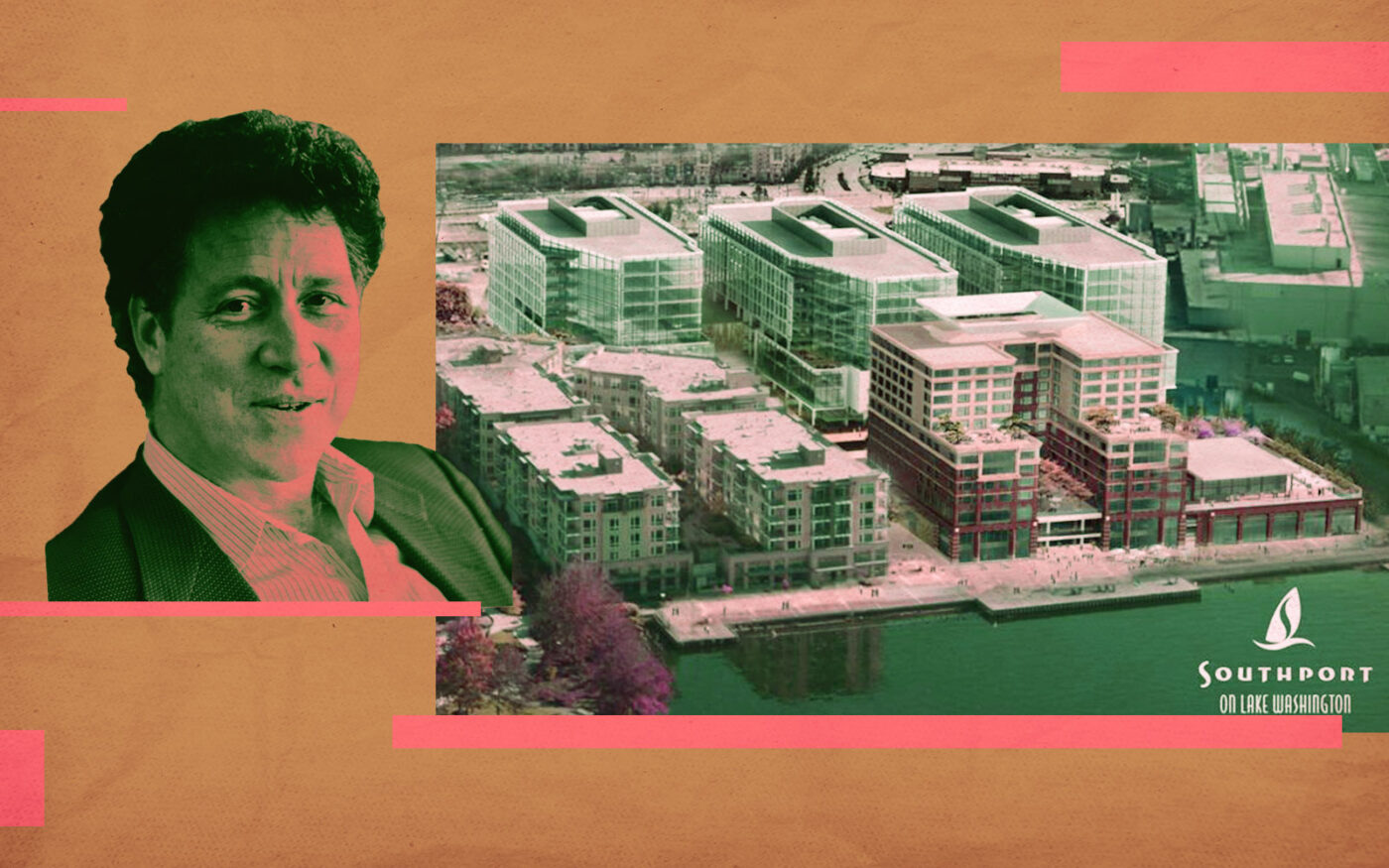SECO Development has listed the Hyatt Regency Lake Washington outside Seattle for an undisclosed price. The catch: the sale is subject to a lawsuit by Chinese investors accusing the developer of fraud.
The Renton-based developer led by Michael Christ has listed the 347-room waterfront hotel at 1053 Lake Washington Boulevard N in a deal that would largely wipe out the foreign investors’ $100 million stake, the Seattle Times reported, citing the complaint.
A trial date has been set for March 10 next year.
The lawsuit, filed on behalf of 49 Chinese investors, alleges that Christ managed the Renton hotel project’s financing in ways that left the investors vulnerable when he put the hotel on the market for an expected loss.
The suit says Christ and other defendants defrauded investors, who seek $26.95 million in damages.
Christ and his Renton-based firm reject the investors’ allegations, according to their attorney, Instead, he and his firm blame high interest rates and the commercial market for why the hotel’s foreign investors won’t be “made whole” by the sale.
The suit is the latest in years-long efforts by Christ and others to ferry the Seattle tech boom to a blue-collar South End community defined by its Boeing 737 assembly lines.
SECO developed the 12-story Hyatt in 2017 as part of its $590 million Southport project, a 25-acre mixed-use development on Lake Washington that included two luxury apartment complexes and three office towers containing 720,000 square feet.
In 2013, SECO and other unidentified defendants began recruiting foreign investors to help finance the Hyatt under the federal EB-5 program, according to the lawsuit. The program lets foreigners obtain U.S. residency in exchange for investment in projects that create jobs.
Some 199 EB-5 investors each contributed $500,000 (plus a $50,000 administration fee) to the Southport hotel project, according to the complaint. In all, $99.5 million was put into a limited partnership, Southport Hotel EB-5 LP, managed by Christ.
That partnership then lent the funds to build the hotel to another SECO partnership, Hotel at Southport LP, which owned the land, according to the suit and to state and federal filings.
Hotel construction began in 2014. The next year, Christ said foundation work was starting on the office project, which also had partial financing via the EB-5 program, according to media reports. SECO sold the apartment buildings in 2021 for $191 million.
The Southport project then went south. Last year, creditors took over the project’s three office towers after SECO struggled to find tenants, according to the Times.
The Hyatt Regency appeared unscathed by SECO’s office problems, but trouble was brewing.
EB-5 investors had been assured that the EB-5 funds being lent for the hotel would be “senior” to other investments in the project — that the foreign investors would be repaid before Christ and other defendants recovered their own investment in the hotel, according to the suit.
The foreign investors were also told that the only part of the project financing that was senior to the EB-5 loan would be a separate construction loan of “no more than $19 million,” according to the suit.
Instead, beginning in 2017, Christ and others withdrew their own funds from the hotel project and replaced those funds by taking out a separate loan for $73 million that was senior to the EB-5 loan, according to the suit.
That new loan was refinanced several times, most recently in 2019 with a $130 million loan that matured last month.
In response to subsequent inquiries by EB-5 investors, Christ and other defendants said the $73 million construction loan and various refinancings were necessary due to “unexpected cost increases in developing the project, which eventually escalated the total development costs to over $250 million,” according to the lawsuit.
But Christ and other defendants were unable to refinance the $130 million loan, which went into default. They planned to sell the hotel property to repay the lender, according to the complaint.
When the EB-5 investors were recently told of the planned hotel sale, they were informed the proceeds “would not be sufficient to repay both the $130 million senior loan and the $99.5 million EB-5 loan,” according to the suit.
Instead, the Chinese investors estimate they would receive $11 million, or less than 10 percent of what they claim they’re owed in principal and interest.
— Dana Bartholomew
Read more



